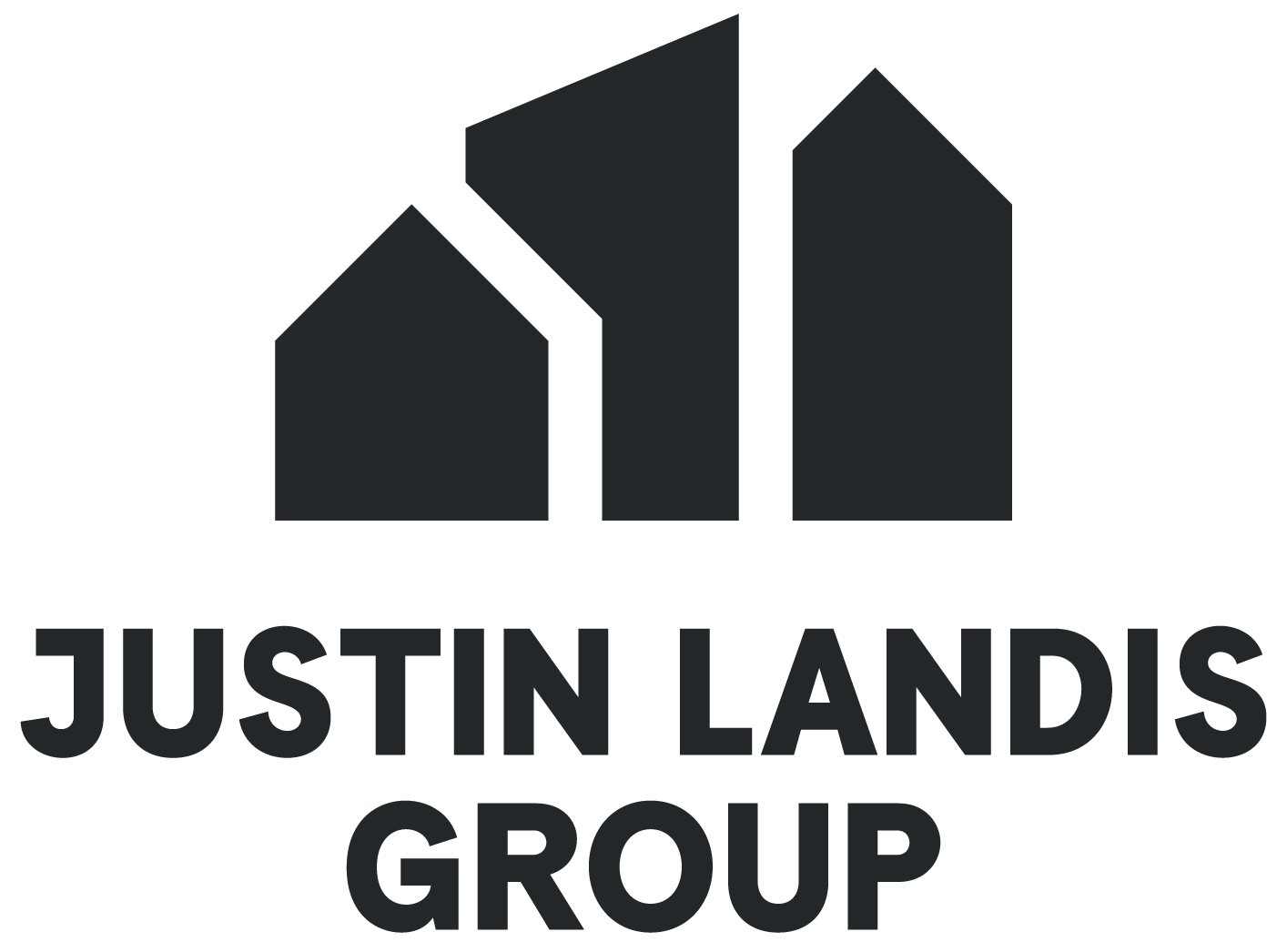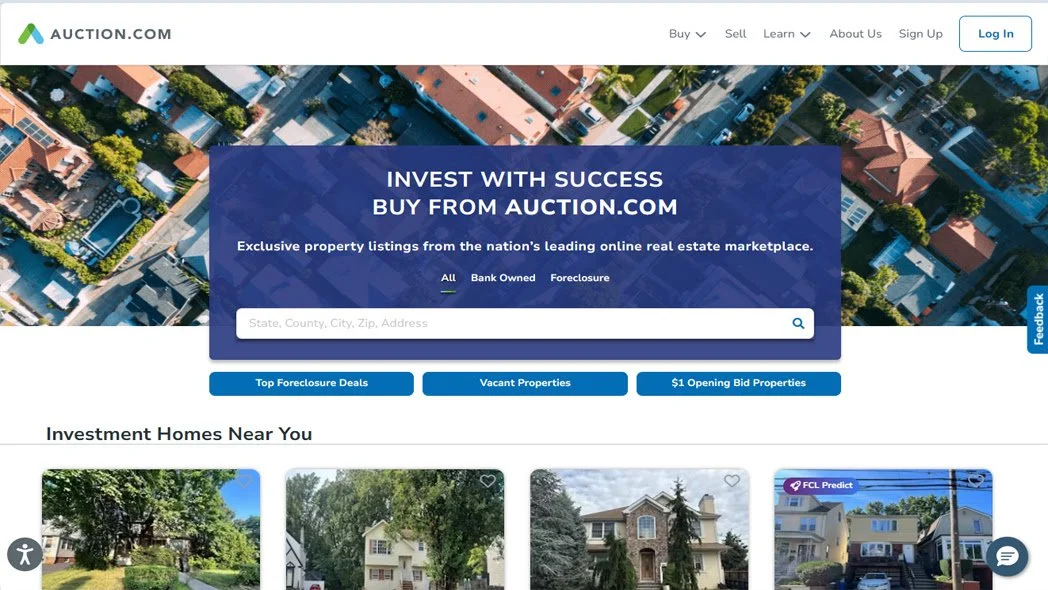How to Buy Atlanta Probate Sales Under Market Value
Looking for Atlanta probate sales means you're probably hoping to find properties selling below market value. Most heirs who inherit a property find themselves in a tough position (they're suddenly responsible for homes they never planned to manage), and it becomes even tougher when beneficiaries live out of state and inherit a house that needs $30,000 worth of repairs. Add in the emotional weight of losing a loved one, along with the legal requirements that can drag on for 6 to 12 months, and it can become too much to manage pretty fast.
Atlanta's probate market does have genuine value, and there's a reason for it. Heirs usually prioritize speed and certainty over the absolute highest price. Properties in some of Atlanta's older neighborhoods (places like Grant Park and West End) frequently sell for 15% to 25% below their market value when families need to settle an estate fast. Cash buyers know this and will usually pay just 50% to 70% of what the home is actually worth. Buyers who take the time to learn the probate process can propose fair options that work well for everyone involved.
Probate investing takes patience, capital and lots of sensitivity to work with families during a tough time. In the following sections, we'll map out what Atlanta's probate market looks like and show you how to find, review and buy these properties as you respect the human side that's a part of every transaction.
Let's talk about how to find great deals on probate properties in Atlanta!
How the Atlanta Probate Market Works Today
Atlanta's probate market operates on a very different timeline than what most homebuyers are used to with normal home sales. We're talking about a process that usually runs anywhere from 6 to 12 months from the day it starts all the way through to closing. For most buyers, that's just way too long to wait around, and it works in your favor because it means you have much less competition than you would in a traditional sale.
Looking at probate properties in Atlanta, you'll see a pattern pretty fast - most of them are located in the older, more established neighborhoods around the city. The repair costs alone can eat up 10% to 20% of what the property's worth - it's enough to scare away plenty of traditional buyers who want something move-in ready. For an investor who's comfortable with renovations, though, these properties give you tremendous value that you just won't find anywhere else in this market.
Everything about buying probate properties in Atlanta changed around 2022, right when the iBuyers and big institutional investors started pouring their money into the market. These firms have deep pockets and pay in cash, and they can close deals faster than most individual buyers ever could. But the old playbook doesn't work anymore. The strategies that worked even just a few years ago need to be completely rethought if you want to compete in this environment.
One of the most interesting parts about probate properties is that most of them have been in the same family for decades. The adult children who inherit these homes frequently have no idea what their parents' property is actually worth in this market if the neighborhood has gone through big changes over the years. A house that their parents bought for $30,000 back in the 1980s could be worth $300,000 or more now in areas that have gentrified. The heirs just want the whole estate settled as fast as possible, in most cases, so they can get on with their lives and put this hard time behind them.
The difference between what heirs think the property is worth and what buyers are actually willing to pay is where savvy investors find their best opportunities. Families in this situation will usually price the home for a quick sale instead of trying to squeeze out every last dollar of profit, or in some cases, they just don't know that their parents' quiet little street has turned into one of the hottest development areas in the entire metro region.
How to Locate the Best Probate Opportunities
Probate properties in Atlanta can be a good investment opportunity if you know where to find them. The payoff for doing a bit of detective work can be worth the time and effort. The public records at the county courthouse are usually the most reliable place to start your search. Fulton County actually makes the whole process pretty easy with their online probate court records system. A helpful strategy is to check for new estate filings every week or two because this lets you find possible opportunities well before they ever hit the normal market.
DeKalb County operates its system a bit differently than Fulton does. You need to create an account first before you're able to access their database. Once you have that set up, though, the search feature lets you filter by the date range to find all the recent filings. The main strategy is to specifically look for estates that have property listed in their first inventory documents. Remember that not every estate is going to have a house available for sale.
For online resources past the courthouse records, websites like RealtyTrac and Auction.com list probate properties throughout metro Atlanta. RealtyTrac tends to focus more heavily on pre-foreclosure listings and distressed sales, and Auction.com specializes in properties that are already scheduled for auction. These two sites can be absolute goldmines for investors who check them on a steady basis. Auction.com usually has much better coverage, specifically for properties in Gwinnett and Cobb counties.
Most investors don't know that estate sales frequently don't happen until 3-6 months after the first probate filing gets submitted. So a property that you spotted in the January filings might not actually come up for sale until May or June at the earliest. Successful investors know that they need to track these cases over time and stay patient throughout the process.
Estate sale businesses represent another helpful angle that's worth looking at. These businesses take care of all the personal property liquidation for estates, and they usually have some inside knowledge about when the house itself will eventually be sold. Building strong relationships with a few of the bigger estate sale businesses in town means they'll start to think of you whenever great opportunities come up. Before making any purchase, consider getting a professional home inspection and checking for potential issues like termite damage that are common in older properties.
Keep It Fair for Everyone
Once you've actually found a probate property that seems worth the effort, the next step is to put together a proposal that makes sense for everyone involved. Most inherited homes throughout Atlanta haven't seen any updates in decades - it's not anyone's fault. The heirs usually don't live in these properties anymore, and the repairs just haven't been a priority for them.
The first step you should take is to go through the entire house and find all the expensive problems that need fixing. The HVAC system should be your first stop, because older units can cost a few thousand dollars to replace when they finally give out. Then take a close look at the roof for any missing shingles or areas that seem to be sagging. Foundation problems are very common throughout Atlanta properties, and it all comes from our clay soil. Clay expands and contracts as moisture levels change throughout the year, and this non-stop movement causes the walls to crack and move over time.
To start making a proposal, add up all the repair costs you've identified. A new roof for an average Atlanta home might run you $15,000 and sometimes more. Foundation work can hit $20,000 if you're lucky. Then the smaller updates like fresh paint and new flooring still need to happen if you want the house to be sellable again.
Most successful probate purchases in Atlanta fall somewhere between 70% and 85% of market value, and for a valid reason - this range gives you enough room to cover all the necessary repairs and still walk away with a decent profit. At the same time, it gives the heirs a fair price for a quick, issue-free sale without having to work with listing the property on the open market.
To calculate that market value accurately, you should review what similar houses in the area have sold for recently. In fast-changing neighborhoods like West End, the sales data needs to be from the last three months at most. Anything older won't accurately show what's going on in today's market. Also, check the condition of these sold properties, because that matters just as much as location.
Usually, the best opportunities come from houses that make other buyers nervous. Big repairs usually send the buyers running in the opposite direction - that's where you can step in with a fair deal that works for everyone.
Connect with Families During Their Loss
The first contact with the heirs is the toughest part, because you need to give genuine help with their property situation and be respectful of the fact that they've just experienced a loss in their family. A little tact goes a long way here.
The letter you send out has to walk a fine line between compassion and practicality. You should acknowledge their loss first, and then you can transition into an explanation of how you can help them with the property they've inherited. Most heirs actually welcome this easy communication about workable options, at least from my experience - it's often the case when they're already facing these tough decisions.
Out-of-state heirs face a whole different set of challenges, and these challenges actually are in your favor as an investor. It's hard to take care of a rental property from hundreds or thousands of miles away - it just isn't workable for most families. Georgia's landlord laws need a level of active involvement and in-person management that most heirs just can't give when they're living a few states away. A cash sale frequently makes more sense for these families than attempting to become a long-distance landlord with all the problems that come along with it.
The timing of your outreach matters quite a bit. You should wait a respectful period after the first probate filing goes through. But you also can't wait so long that another investor comes in and makes their pitch first. Two to three weeks after filing usually works because it gives families enough time to process everything, as you stay ahead of your competition.
Heirs usually have a few specific problems that you can address right from the start of your conversation with them. They frequently need to clean out decades of personal belongings from the property, but might not have the time or ability to make multiple trips back and forth. Some families have three, four or five beneficiaries who all need to reach a consensus on what they should do with the property. Somebody has to continue paying for lawn care, utilities, insurance and property taxes as the probate process slowly works its way through the court system.
Your deep knowledge of how the probate process works is one of your most helpful assets here. Heirs start to develop trust in your expertise and intentions when you closely explain the timelines, legal requirements and what the family can expect at each stage of the process.
Moving to Atlanta?
Institutional buyers have the upper hand with cash on hand and resources. Independent investors have something very different. Investors who actually take the time to sit down and listen to families and come to the table with compassion and empathy and who see heirs as human beings with genuine problems instead of just another deal to close - these investors will always have a strong foothold in this market. That personal connection and genuine care make the difference when families have to choose who they want to trust with a property that belonged to a loved one they treasured.
I've watched how much it matters to know your local market inside and out. Knowing how Fulton County works through its filing requirements or being able to tell a family which neighborhoods (Grant Park is a great example) are experiencing the most probate activity lets you take what looks like an impossible situation for a family and turn it into manageable steps that they can manage. The reality of probate investing is that it's not about swooping in to grab properties at rock-bottom prices and then flipping them for massive profits a month later. Actual and sustainable success in this field comes from patience and preparation. You need to have enough cash reserves set aside for the repairs that will inevitably come up, and you need to be willing to wait for the right opportunities. Above all, you need to have the emotional intelligence to work with families who are going through grief and stress with grace and respect.
Maybe after reading all this information about Atlanta, you're actually ready to put down roots here instead of just buying an investment property. The Justin Landis Group has spent years building up that exact type of local knowledge. Some buyers need a peaceful neighborhood in one of Atlanta's quieter suburban areas, and others want to be right where everything's happening downtown - we've helped these different types of buyers and everyone in between find what works for them. Our team knows how to work through Atlanta's market and actually get you into the home you want.
Contact the Justin Landis Group, and we'll start working on finding your perfect home!






